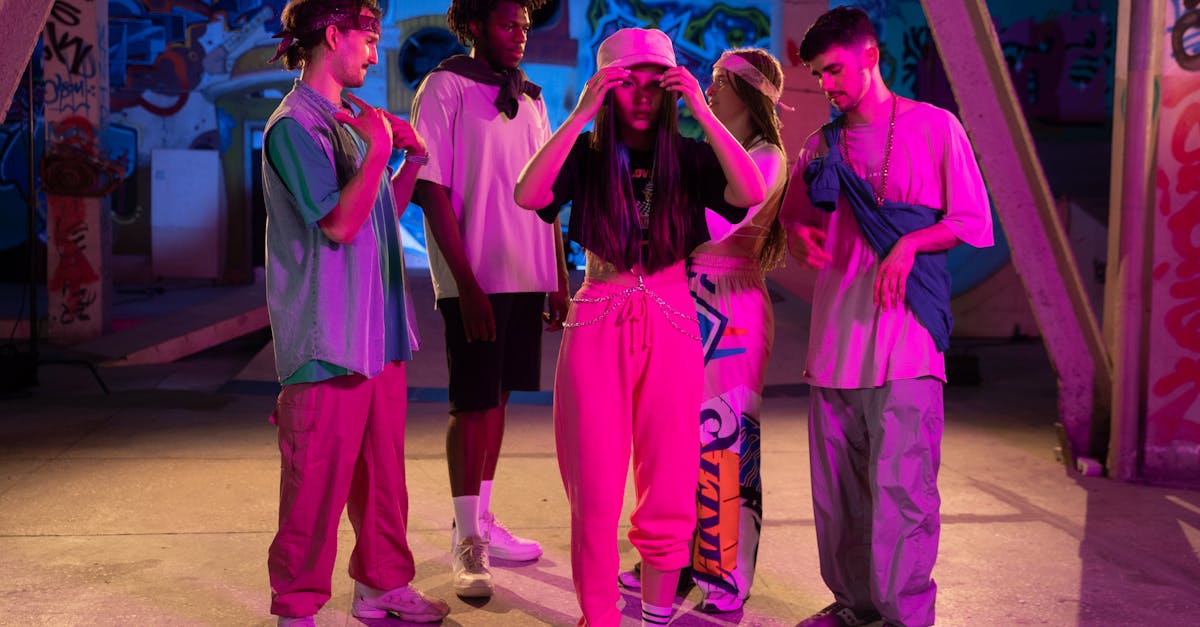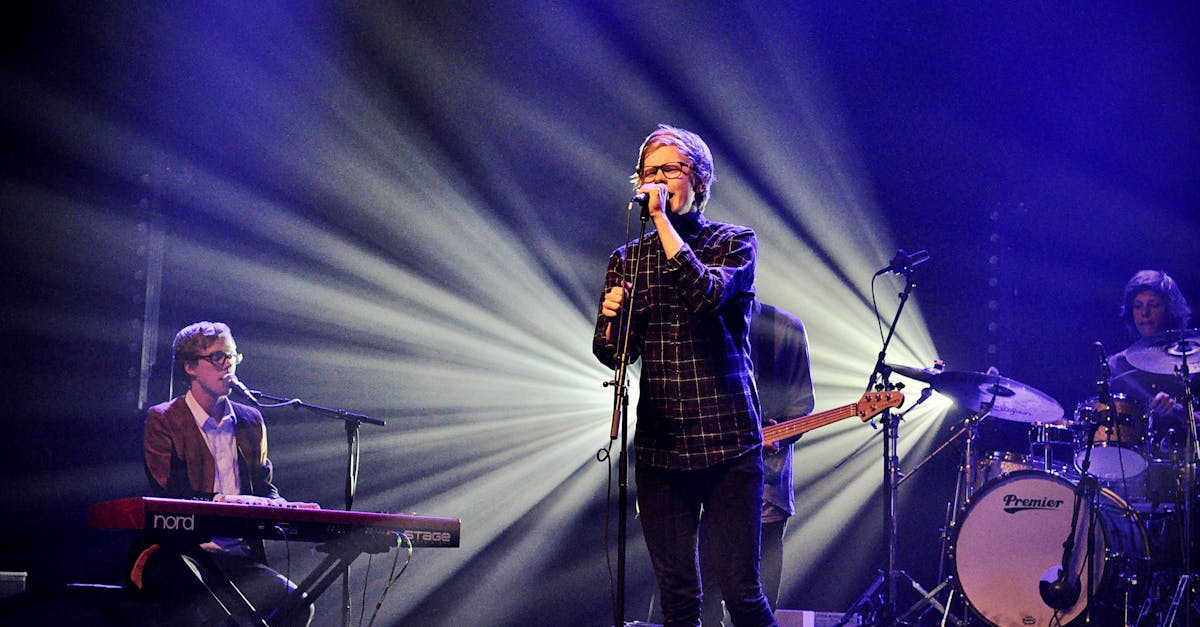Exploring the Urban Groove Soundscape Journey
Introduction to Urban Groove Soundscape
Urban Groove Soundscape is a vibrant auditory exploration that captures the essence of city life through the art of sound. It's a journey into the heart of urban environments where diverse musical influences blend, creating a unique sonic experience. These soundscapes play a significant role in defining the cultural and social identity of cities worldwide. From the rhythm of bustling streets to the spontaneous beats of street performers, these soundscapes provide an immersive experience of the urban atmosphere. But what elements constitute this auditory phenomenon? How do they shape the ever-evolving dynamics of metropolitan life? Let's delve into the essence of Urban Groove Soundscape.
Advertisement
The Roots and Origins
The concept of soundscapes originates from the need to understand the auditory environment in its entirety. Urban Groove Soundscape, specifically, draws its roots from genres like jazz, hip-hop, and electronic music, which are deeply intertwined with city life. Cities like New York, London, and Tokyo are melting pots of cultural influences, each contributing unique elements to the soundscape. These sonic environments evolve with time, reflecting historical and cultural changes. Street performers, local bands, and nightclubs perpetuate this evolution, embedding new layers into the city’s auditory identity. As technologies and musical styles advance, so do the intricate tapestries of these soundscapes.
Advertisement
Elements of the Urban Groove
A typical Urban Groove Soundscape features a plethora of auditory elements, from natural sounds to human-made music. Ambient noises, such as traffic, construction, and chatter, form the backdrop against which the more deliberate musical performances stand out. Musicians and DJs bring grooves and rhythms that mirror the vibrancy of city living. Incorporating indigenous and international musical styles, these urban musicians often create novel fusions. Contemporary sound installations and public art also contribute to this sonic tapestry, transforming everyday spaces into remarkable auditory experiences. Through this amalgamation of sounds, cities craft a character that is specifically their own.
Advertisement
Cultural Impact on Urban Soundscapes
Urban soundscapes are more than just auditory phenomena; they are cultural expressions that reflect the societal fabric of their environments. Music often acts as a medium for communities to express their identities and narratives. Public gatherings like festivals and street parties see a celebration of cultural diversity through music. The emergence of subcultures and their influence on urban music further enriches the soundscape. These cultural manifestations not only enhance artistic innovation but also foster a sense of community and belonging among city dwellers. As cities become more diverse, the resulting soundscapes continually adapt, crafting a musical dialogue among its residents.
Advertisement
Social Dynamics of Soundscapes
Urban Groove Soundscapes significantly influence social interactions within the city. The presence of music and sounds in public spaces fosters casual social gatherings, encouraging spontaneous interactions among people. Musicians and street performers often become integral members of neighborhood landscapes, transforming them into familiar and vibrant social hubs. Moreover, urban soundscapes act as catalysts for social change, providing platforms for activism and social movements, as seen in historical events where music played a pivotal role. Through these auditory experiences, people not only appreciate music as an art form but also engage in meaningful social discourse.
Advertisement
Technological Influence on Sound Experience
Advancements in technology profoundly impact how we perceive and curate Urban Groove Soundscapes. High-tech gadgets and improved access to music production tools enable artists to experiment with sounds like never before. Innovations such as virtual reality and augmented reality are redefining experiential soundscapes, allowing listeners to immerse themselves in an ever-expanding auditory spectrum. Apps and online platforms facilitate the sharing and discovery of underground music, bringing obscure urban sounds to the forefront of public attention. These technological strides usher in fresh approaches to musical creativity in urban settings, ensuring the continuous evolution of these soundscapes.
Advertisement
Sustainability of Urban Soundscapes
In the drive towards urban sustainability, preserving soundscapes constitutes a crucial yet often overlooked element. Ensuring the continuation of these sound environments necessitates a balance between urban development and cultural preservation. City planners and municipalities are increasingly recognizing the importance of public spaces designed for music and sound. Concerted efforts are needed to combat noise pollution, ensuring that harmonious urban grooves remain audible and appreciable by all. Initiatives like soundwalks and community sound mapping involving local residents encourage a collective responsibility towards maintaining the integrity of their city’s auditory ambiance.
Advertisement
Economic Contributions of Urban Sounds
Urban Groove Soundscapes also contribute economically to the cities they inhabit. Street music and performances draw tourists and locals alike, enriching the city's cultural offerings and strengthening its tourism appeal. Music festivals and concerts generate substantial economic activity by supporting local businesses, from hospitality to retail. Moreover, musicians and sound artists often become part of creative industries, contributing to the local economy by creating jobs and fostering talent. As cities embrace their urban groove, they harness the economic potential of these soundscapes while celebrating their unique cultural footprint.
Advertisement
Challenges and Opportunities
While Urban Groove Soundscapes thrive, they also face challenges that new urban realities pose. Noise pollution, urban sprawl, and diminishing public spaces threaten the vibrancy of these sound environments. Ensuring the survival and growth of soundscapes relies on proactive policies and community engagement. City initiatives promoting public music events, investing in music education, and bolstering local arts communities offer opportunities for growth. Collaborative efforts among artists, communities, and policymakers are pivotal in overcoming these challenges and paving the way for future sonic explorations in cityscapes.
Advertisement
Conclusion: The Continuing Soundscape Journey
Urban Groove Soundscapes encapsulate the essence of modern city life, weaving together cultural, social, and economic threads into a rich tapestry of sound. Beyond mere background noise, these soundscapes narrate the story of a city’s dynamic existence. Despite challenges, these auditory journeys continue evolving, driven by innovation, creativity, and diversity. Their symbiotic relationship with urban life highlights the importance of nurturance and preservation. As cities grow and change, their soundscapes remain testaments to cultural resilience and human expression—an ever-present invitation to immerse, explore, and experience the diverse rhythms of urban living.
Advertisement








